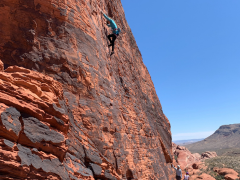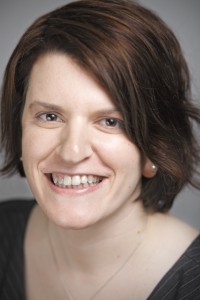From English Major to Statistician: Meet Cassie DeWitt of the Detroit Fire Department
October 13, 2015
We recently spoke with statistician Cassie DeWitt about her job as a data analyst at the Detroit Fire Department, where she helps solve problems related to urban transitions and crises using quantitative and spatial analysis. She helps fight fires not with hoses or ladders, but tools from statistical science.
Cassie’s story also is also interesting because she didn’t start out studying math or statistics in college. In fact, she graduated with a bachelor’s degree in English and then went on to study statistics during her master’s program.
How do you use statistics in your job?
I work with the commissioner and his team to help the Detroit Fire Department carry out its long-term vision and make data-driven decisions. For example, I conduct spatial analysis and create maps to help manage EMS response times. I also conduct quantitative and spatial analysis aimed at reducing the incidence of building fires.
How did you become interested in statistics?
My interest in statistics came through my master’s degree in urban planning at the University of Michigan. During the program, I took a course with Dr. David Bieri (now at Virginia Tech) on quantitative planning methods. I learned how (spatial) statistics could help inform policy in urban environments. We also studied intensive data analysis and learned how to use R, a programming language for statistical computing and graphics. I was hooked!
What do you like about being a statistician?
I love working in a field that gives me the opportunity to combine my multi-disciplinary background, passion for numbers, and enjoyment of detail to solve urban issues.
What did you study in college?
I actually majored in English, and I hope my example will embolden other English majors to take a course in statistics. It’s such a useful and practical skill – any liberal arts or humanities major will benefit from statistics education.
What would you tell a student who is considering a career in statistics?
Statistics is a fascinating multi-disciplinary field through which one can change cities, urban areas, and quality of life. It brings with it a tremendous amount of power, promise and responsibility.
Big Data is also changing the field of statistics, and making it even more interesting. For example, there is much more access to very detailed and large data sets on cities, which offers exciting opportunities to expand traditional research through geographical modeling that really enhance our understanding of data and how we are able to communicate those findings to decision- makers.
What are your favorite resources for learning about statistics?
I love Edward Tufte’s classic work on data visualization, “The Visual Display of Quantitative Information” (Graphics Press; 2nd ed, 2001); Nathan Yau’s contemporary version, “Visualize This: The Flowing Data Guide to Design, Visualization, and Statistics” (Wiley; 2011); and the online community of data- science practitioners, R-Bloggers.
Want to read about other cool jobs in statistics? Check out Jenn Van Mullekom from DuPont here . Do you know any cool statisticians who you think we should feature? Write us at thisisstats@gmail.com and let us know!
Related Posts

Hindsight Is 2023 for Former Statistics and Data Science Students
It’s back-to-school season! Gear up for the upcoming semester and consider diving into the captivating world of statistics and data science. Looking for diverse job opportunities that span across every industry? Look no further! With a variety of graduate programs and jobs, now is a great time for students to become data scientists and statisticians….

Elizabeth J. Kelly: “Statistics is for Adrenaline Junkies”
Elizabeth J. Kelly has always loved math, and as a professional statistician at Los Alamos National Laboratory (LANL) and a recreational rock climber, Elizabeth is an avid thrill-seeker who enjoys a challenge. “Math reminds me of climbing, including the need to focus, problem solve and persevere. I guess I ended up in statistics because I…


